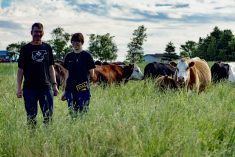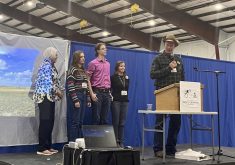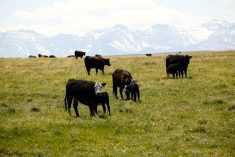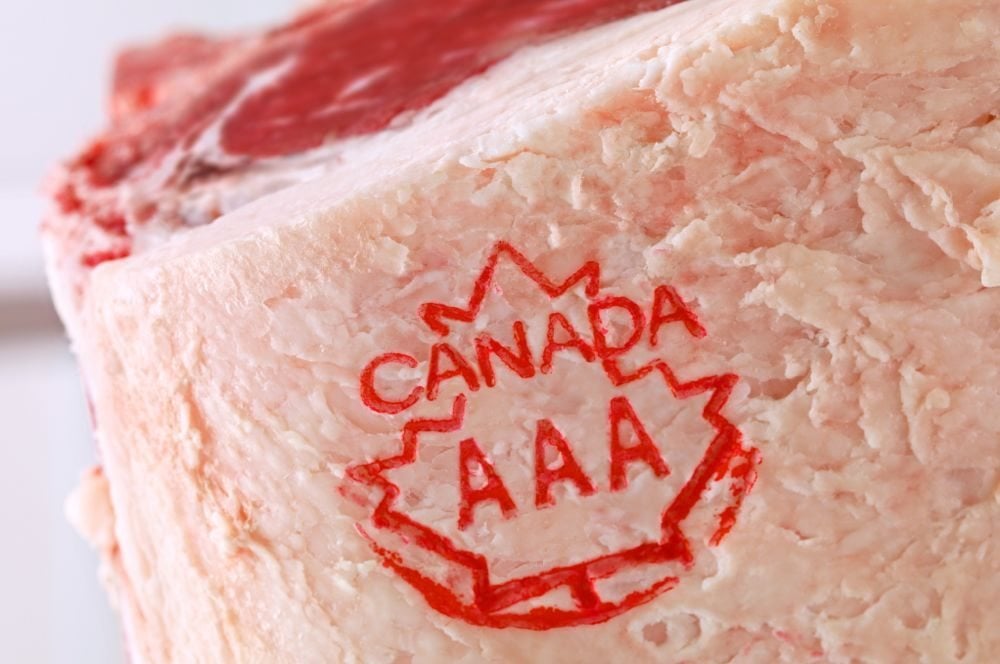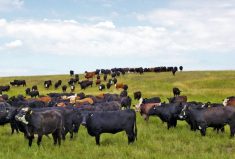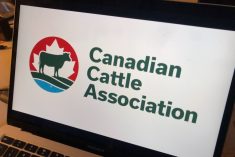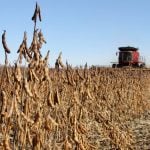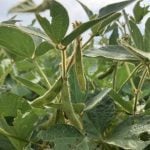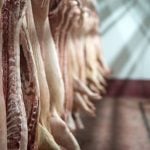When I walk around the hilly countryside of our family ranch southwest of Calgary and watch the spring thaw melting away winter’s grip, I always think of this time of year as a new beginning.
The time has never been more right to start anew and tell our good-news story of modern cattle production. There is much work to be done. That’s why this year CCA is embarking on developing a comprehensive strategy to successfully communicate to our key industry stakeholders the positive impact of Canadian cattle production on our environment. Getting our story out has become even more imperative as both Canada and the U.S. have governments with climate change at the forefront of their policy priorities.
Read Also
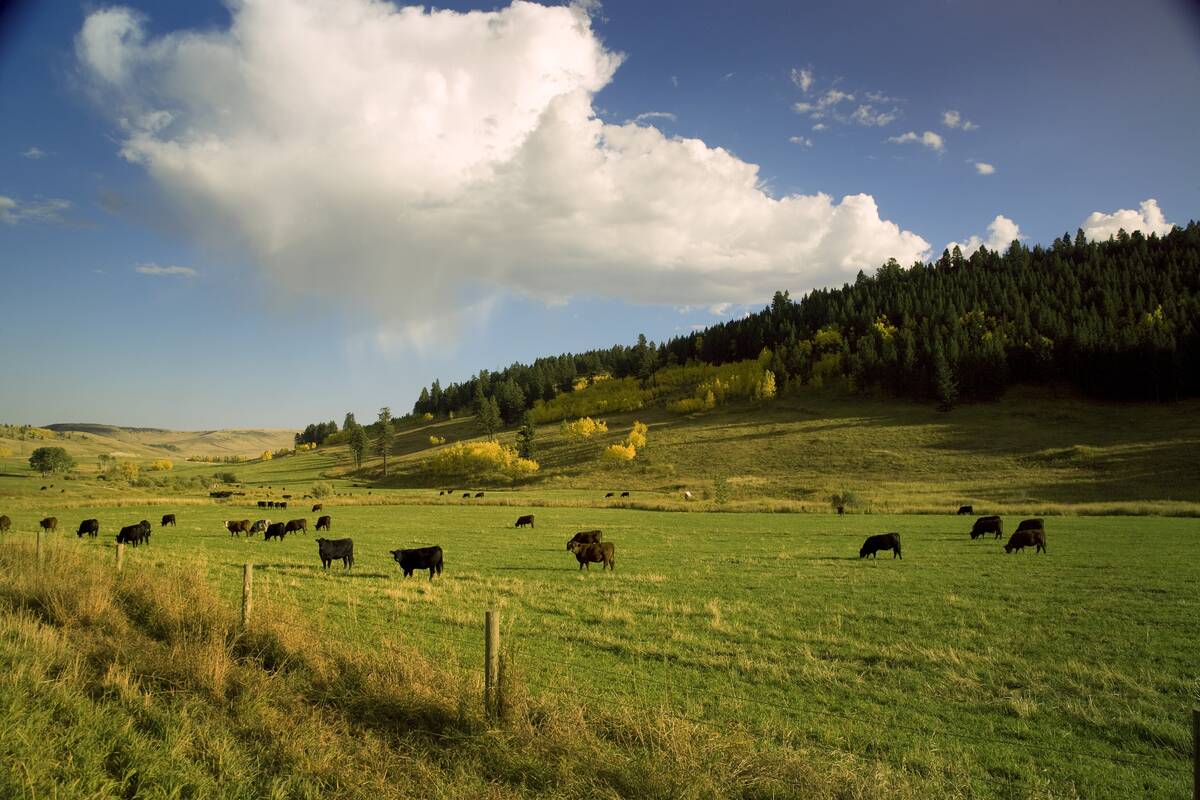
The Canadian Cattle Association’s international advocacy efforts
Global ag policies affect Canadian food policy, so the Canadian Cattle Association participates in international and domestic forums
Our long-term strategy is to become attuned with how CCA and its provincial member organizations can more effectively communicate the positive environmental impact, starting with our governmental influencers specifically, and then more broadly to vested stakeholders. We will be looking at several key areas to move our industry forward including a possible rebranding strategy, development of key industry messages, targeted social media and communications strategies and proactive promotional campaigns.
Recent public-facing initiatives such as the documentary Guardians of the Grasslands, which has been receiving ongoing positive reviews at screenings across the country, is a great step towards telling our good-news story in an engaging way to audiences both inside our industry and the general public.
In early March, we were happy to hear the Saskatchewan Stock Growers Foundation (SSGF) received a $3.4 million contribution from the Weston Family Foundation for the Prairie Grasslands Initiative, one of the largest native grasslands conservation efforts in Canadian history. CCA supported SSGF’s application for funding due to its critical importance. The Weston Family Foundation awarded nearly $25 million to five organizations under this Prairie Grasslands Initiative including the SSGF, Ducks Unlimited Canada, Nature Conservancy Canada, Grassland National Park (Parks Canada) and the Meewasin Valley Authority. The funds will be distributed across these organizations over a five-year period to accelerate the adoption of sustainable approaches to protect and restore biodiversity in the prairie grassland landscape in Alberta, Saskatchewan and Manitoba. The prairie native grassland ecosystem is one of the most endangered terrestrial ecosystems. It’s an important habitat for many endangered species and an important migration stop for millions of birds. These grasslands provide nutritious food by supporting soil health, offer grazing for livestock and act as critical habitat for essential pollinators. Hats off to the Weston Family Foundation.
Personally, I am excited to see how our industry will continue to evolve and grow in the years to come with better education and awareness. If this past year has taught us anything, it has brought the importance of high-quality products and a safe food system to the minds of Canadians, and we have valued, more than ever, the vast and diverse ecosystems we are lucky to have outside our back doors.
This past year has also put our food system and supply chains in the spotlight. Coincidentally, the United Nations (UN) is planning a Food Systems Summit for 2021, the first of its kind in 25 years. The Food Systems Summit is part of the decade of action to deliver the UN’s 17 Sustainable Development Goals (SDGs) by 2030. The decade of action was called for by world leaders at the 2019 UN General Assembly to accelerate efforts towards the achievement of the SDGs, many of which directly relate to food production and security.
CCA is excited to participate in this event to ensure the global policy and public opinion coming out of it consider the Canadian context and unique benefits of raising cattle in this country. A key concern of Canadian beef producers is the global forum’s focus on reducing meat consumption, particularly red meat, for environmental and health reasons. There are nutritional and environmental benefits to the production of beef and our goal is to ensure these facts are part of the dialogue. With that in mind, CCA is collaborating with its international partners, including the Global Roundtable for Sustainable Beef, Livestock, Environmental and People, Global Agenda for Sustainable Livestock, International Meat Secretariat and others to ensure Canada beef’s story is being shared via global networks. Domestically, CCA is working with stakeholders to contribute to Canada’s official government-led dialogue. Perhaps our biggest display of leadership will be in organizing our own independent dialogue here at home.
As part of the UN summit, this month CCA will lead a dialogue series entitled “Grazing Livestock: Building Sustainable Protein Supply Chains,” which will explore grazing livestock and its role in building a sustainable protein supply chain. A solutions-oriented event for efficient, regenerative and nutritious protein production will bring together a diverse set of stakeholders for a bold discussion on what is being done now and where we need to go next.
CCA’s environmental and food policy initiatives, while distinct, are very much tied to the broader objective of telling the story of modern-day cattle production. Be sure to follow CCA social media channels on Twitter, Facebook, and LinkedIn for more on the dialogue (the outcomes) and our environmental initiatives in the months ahead.



